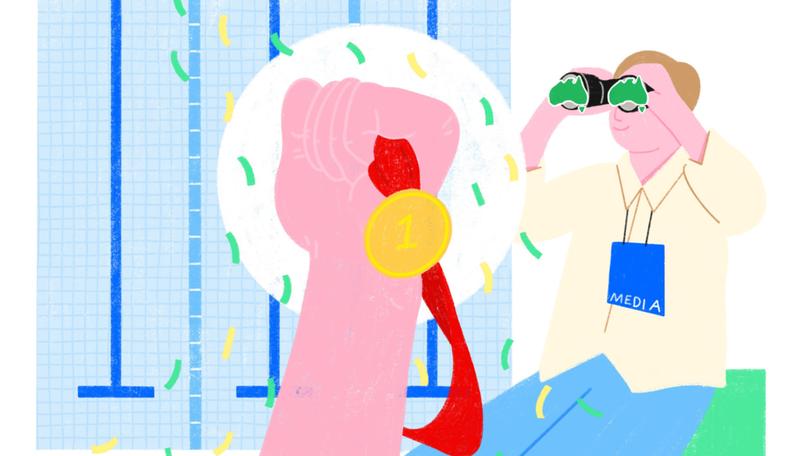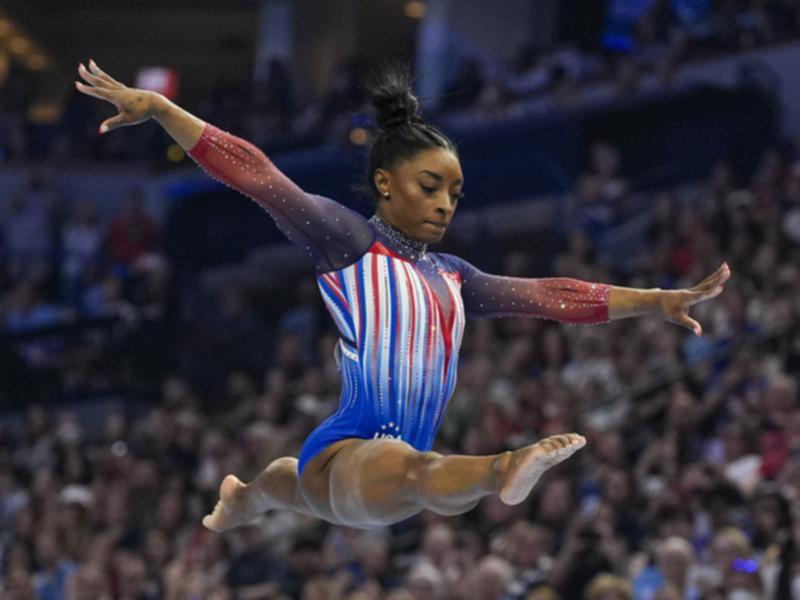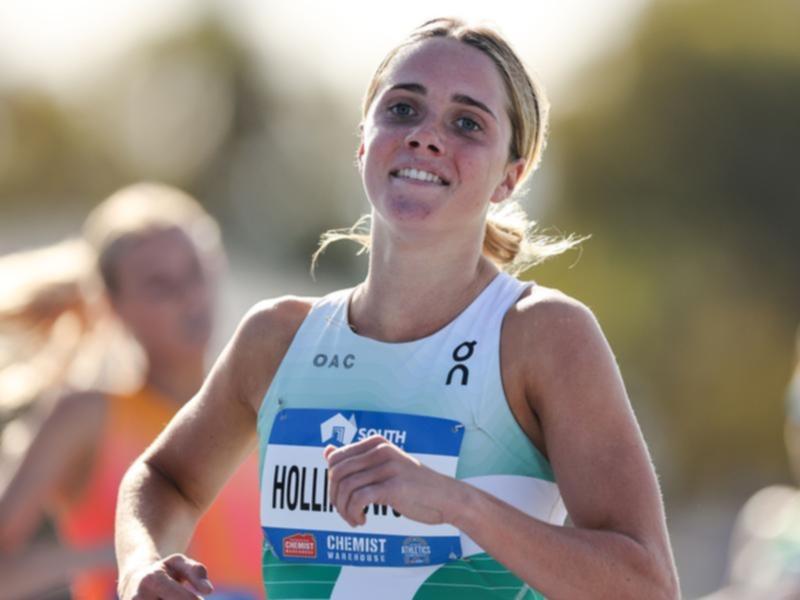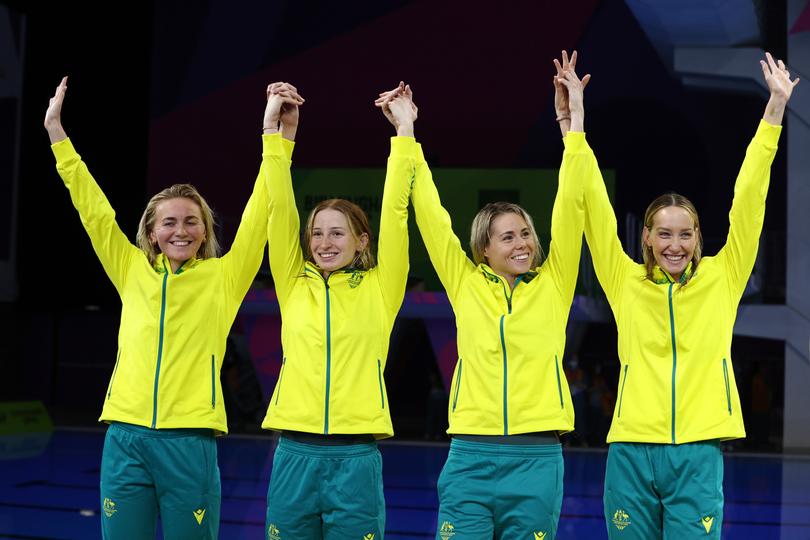JENI O’DOWD: Five things I hate about the Olympics (and one thing I love)
JENI O’DOWD: The Olympics celebrate athletic excellence and international camaraderie — but also highlight the worst aspects of our national character and media.

The Olympics celebrate athletic excellence and international camaraderie — but also highlight the worst aspects of our national character and media. Here are five things I hate about the Olympics and one thing I genuinely love.
1. The harsh criticism of our Olympians
Australians are notoriously brutal when it comes to evaluating the performance of our Olympians. Criticism is relentless if an athlete fails to medal or lives up to expectations. Few people understand the gruelling journey just to qualify for the Olympics, which often starts when the athlete is still in school.
Sign up to The Nightly's newsletters.
Get the first look at the digital newspaper, curated daily stories and breaking headlines delivered to your inbox.
By continuing you agree to our Terms and Privacy Policy.Instead, while sitting on the couch and eating yet another packet of potato chips, keyboard warriors who have never competed in their life (let alone at an elite level) decide they are experts and jump on social media to leave appalling, horrible comments — all anonymously, of course.
The mental and physical toll of getting to the Olympics is enormous, and competing on the world stage is a pressure cooker of expectations.
Phenomenal gymnast Simone Biles’ decision to prioritise her mental health during the 2020 Tokyo Olympics should have been a wake up call.

Instead, she was called a quitter and much worse on national television and social media. I, for one, will be cheering her on when she competes in Paris next week.
2. The myopic Australian media
The Australian media’s obsession with our athletes (especially swimmers) is infuriating. While it’s natural to focus on our own athletes, ignoring the achievements of top performers from other countries is frustrating and a disservice to people who love sports.
The games are about international competition and celebrating excellence from around the globe.
Yet, our media coverage often skips over remarkable non-Australian performances, fostering a narrow, nationalistic view of the event.
It’s like: “And the Australian finished thirtieth, what a brilliant achievement! Oh, and the winner did well, too.”
And let’s not forget the same story dished out at every Olympic Games — the cardboard beds, the food in the athletes’ village and, of course, the condoms.
3. The constant focus on our swimmers
Yes, we have a proud history of success in swimming, and yes, our best medal chances are in the pool. But the unrelenting focus on this one sport is tiresome.
How about some excitement about athletics? NSW higher jumper Brandon Starc, who has been jumping since he was 15 and recorded an incredible 188cm before he turned 16, is competing for the third consecutive time at Paris 2024.
The seasoned (and very lovely) Jessica Hull, from Bankstown in NSW, is the world record holder in the 2000m. She set the record in July with a stunning time of 5:19.70.
Teammate 19-year-old Victorian middle-distance runner Claudia Hollingsworth, who started running in Year 4, is making her anticipated Olympic debut after a domestic season, achieving six PBs in six races over 800m, 1500m and 3000m.

Australian discus record holder Matt Denny, from the small town of Allora, 150 km southwest of Brisbane, is competing in his third Olympics. He’s also fun to follow on socials.
At just 14 years of age, Tweed Heads’ Chloe Covell — coached by former rugby league star and dad Luke — is vying to become our youngest medallist in skateboarding.
And if you want to watch something completely different, tune into breaking (break dancing), which is making its debut in Paris. Jeff Dunne, a 15-year-old high school student from Casuarina in northern NSW, and Rachael Gunn, from Hornsby, are both competing.
There are many other incredible athletes in sailing, surfing, football, basketball, boxing, and much more, all destined to be overshadowed by the relentless coverage of swimming.
4. The paltry pay for medallists
Australian Olympians are paid shockingly little compared to their counterparts in other countries if they win a medal, receiving $20,000 for gold, $15,000 for silver and $10,000 for bronze.
In comparison, the US Olympic Committee pays its gold medal-winning athletes $37,500, $22,500 for silver, and $15,000 for bronze —and that’s in US dollars.
For years, Aussie athletes have paid for their own coaches and equipment to become good enough to reach Olympic level. They have also travelled around Australia and overseas many times to attend different meets.
Most work full-time while training, with younger athletes juggling the rigours of school and the HSC.

Training is not running laps around an oval or a few sessions throwing the discus, either. It’s hard core, involving incredibly tough sessions in and out of the gym — nearly every day — plus, for some, meetings with sports psychologists before a big meet (with the best booked out months before any Olympics or Commonwealth Games).
When an athlete wins a medal, there are many lucrative endorsements and sponsorships they can take (if they have a high enough profile, that is). But before that, forget any significant help apart from a means-tested grant from the Australian Institute of Sports and some help with flights. Some of our best athletes live and train overseas, where they can compete in paid competitions.
Australia needs to step up and better reward our athletes for their achievements before and after the Olympics.
5. Unrealistic expectations from parents
Every time the Olympics rolls around, a particular type of parent watches with stars in their eyes, convinced that their child is a future Olympian.
These expectations can lead to undue pressure on children, nastiness and exclusion among parents of junior athletes, and disappointment when reality doesn’t align with ambition.
Some parents befriend others solely based on whether the child is a good training partner for their own, ignoring everyone else. The level of sycophancy towards the coach by some parents can be downright nauseating.
Becoming an Olympian is extraordinarily difficult. Not every talented young athlete will make it.
Instead of fostering unrealistic Olympic dreams, this type of parent should focus on encouraging their child to participate in sports for health, friendship and enjoyment.
What I Love About the Olympics
I love the incredible, unexpected performances and the pure joy of the young athletes. I love watching underdogs triumphing against all odds, athletes achieving personal bests, and the excitement of competitors who are simply thrilled to be there.
These moments remind me of the true spirit of the Olympics — determination, sportsmanship, and the celebration of human potential.
